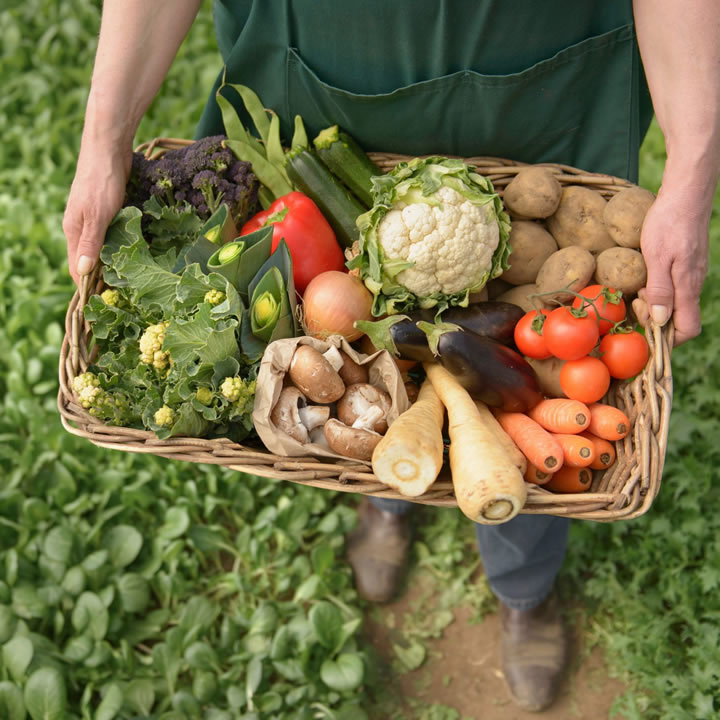Nowadays, organic produce is becoming increasingly popular as people become more aware of the potential health and environmental benefits of choosing organic options.
But with so many different fruits, vegetables, grains, and other products labeled “organic,” it can be hard to know which ones are worth purchasing. Is it better to get organic apples or potatoes? How about spinach versus broccoli?
In this article, expert Gregory Bubelo from Baltimore City, Maryland, will explore the best types of products to buy organic, what factors you should consider when making your decision, and how to save money on organic groceries.
We’ll also discuss possible alternatives if you want to avoid buying anything labeled “Organic.” By the end of this article, you’ll clearly understand which product is best for your health and budget when shopping organically. So read on to learn more about organic produce.
The Benefits of Organic Produce
Gregory Bubelo says organic produce is grown without synthetic pesticides, chemical fertilizers, or other artificial substances. This means that the soil they’re grown in is healthier, and the plants themselves are better able to absorb nutrients from the environment around them. This results in higher quality, more nutritious food, and fewer environmental pollutants.
Organic farming practices also help sustain wildlife habitats. By avoiding synthetic pesticides, farmers can protect local ecosystems and promote biodiversity. Lastly, because organic farming methods don’t rely on large amounts of energy-intensive production processes, they’re much more sustainable than conventional farming methods—which means less strain on our planet’s resources.
Which Produce Should You Buy Organic?
When choosing organic produce, there are a few key factors to consider. One of the most important things to remember is that some types of fruits and vegetables contain higher levels of pesticides than others.
For example, apples are one of the most heavily sprayed fruits on the market today—so you must buy them organically when possible. Other fruits and vegetables with high levels of pesticides include celery, strawberries, bell peppers, grapes, spinach, lettuce, peaches, and nectarines.
On the other hand, some types of fruits and vegetables are relatively low in pesticide residues—even when grown conventionally—so you can feel good about buying them even if they’re not labeled as organic.
These include avocados, sweetcorn (non-GMO), pineapple, cabbage, onions, frozen sweet peas (non-GMO), papayas (non-GMO), mangoes (non-GMO), eggplant (non-GMO), honeydew melon (non-GMO), kiwi fruit (non-GMO), cantaloupe (non-GMO), cauliflower (non-GMO), broccoli (non-GMO), mushrooms, grapefruit, asparagus, sweet potatoes, limes, oranges, tangerines, tangelos.
What Can You Do to Reduce Your Exposure to Pesticides?
Gregory Bubelo says the best way to reduce your pesticide exposure is by buying organic produce whenever possible. If this isn’t an option, you can also reduce your risk of pesticide exposure by thoroughly washing and peeling all fruits and vegetables before consuming them.
Additionally, avoid buying imported produce—these are often less likely to be grown organically than domestic produce. Finally, purchase locally-grown organic produce whenever possible—this can help support your local farmers while reducing your exposure to pesticides.
Is It Worth Paying More for Organic Produce?
For many people, buying organic produce is worth the extra cost. With all the benefits of buying organic—including higher nutrient levels, fewer environmental pollutants, and healthier soil—it’s easy to see why so many people are making the switch.
Plus, plenty of price comparison websites and apps can help you find the best prices on organic produce in your area.
So, buying organic is worth considering if you want to improve your health while reducing your environmental footprint. Just remember to choose wisely—and research to ensure you’re getting the best quality organic produce for your money.
Where To Find Organic Produce
Organic produce can be found in many places, including health food stores, farmers’ and specialty grocery stores.
You can also buy organic produce online from various retailers like Amazon. If you’re looking for a more budget-friendly option, consider joining a local CSA (Community Supported Agriculture) program or buying directly from local farmers.
In conclusion, buying organic produce is a great way to support the environment and protect your health.
Although it can be more expensive than conventional produce, you’ll reap the rewards of higher nutrient levels, fewer environmental pollutants, and healthier soil – so it’s worth considering. Just remember to do your research and buy wisely.
Conclusion
Gregory Bubelo says shopping for organic produce can be overwhelming at first glance—but it doesn’t have to be!
Understanding the benefits of buying organic products and knowing which fruits and vegetables contain higher levels of pesticide residue than others when bought conventionally grown can help make your grocery shopping trips easier—and healthier!
Plus, by reducing your exposure to potentially harmful chemicals found in nonorganic foods, you can reduce your risk for long-term health problems down the line! So why not opt for organically grown foods whenever possible? Your body will thank you for it!

